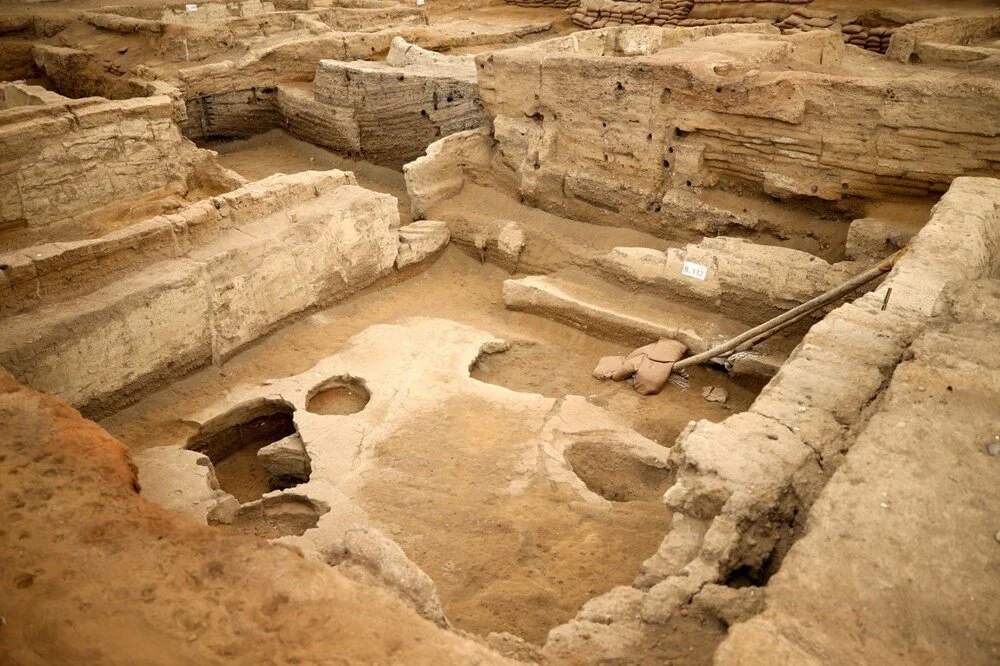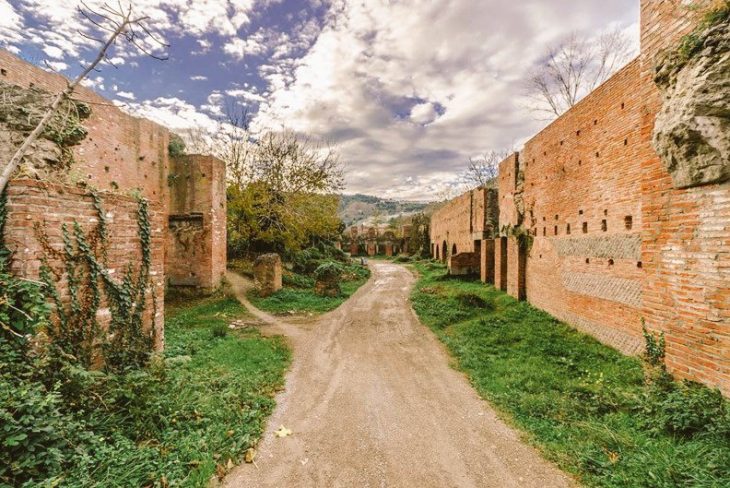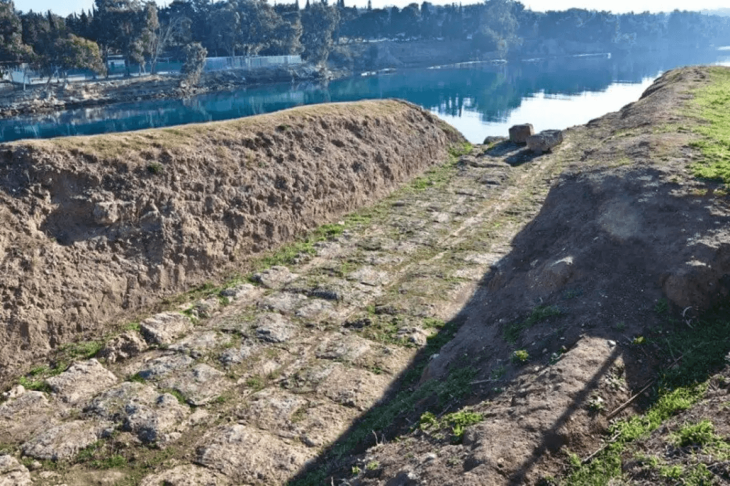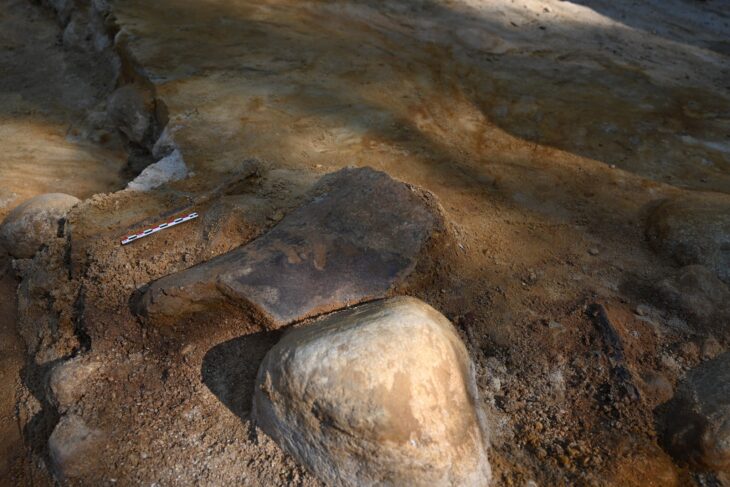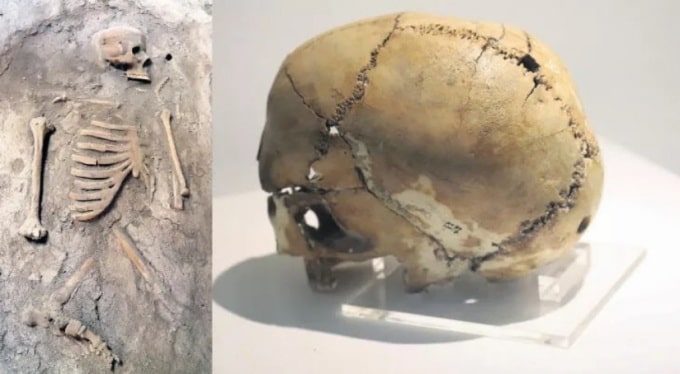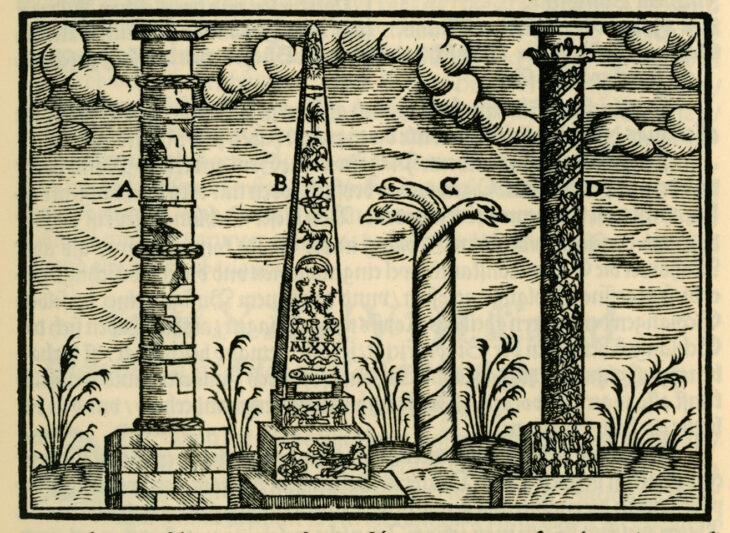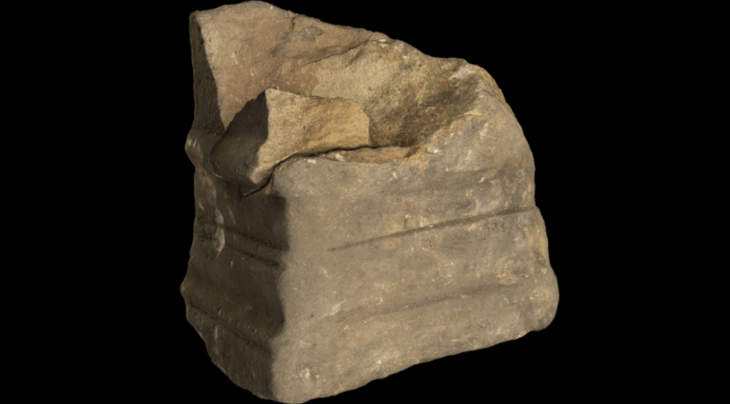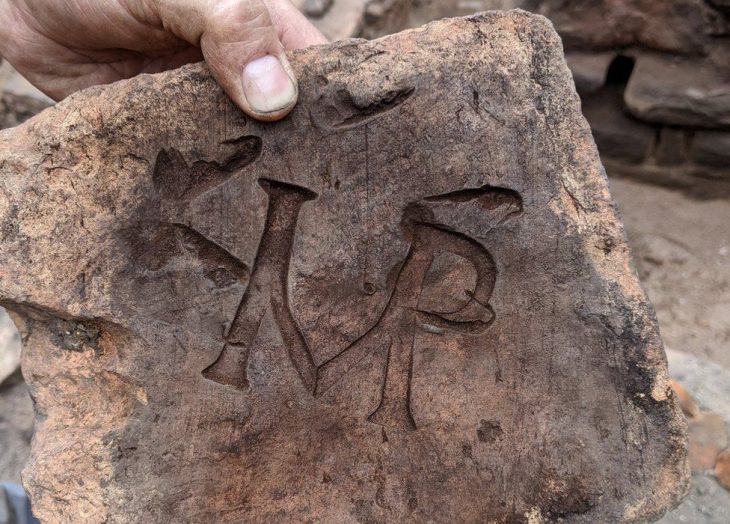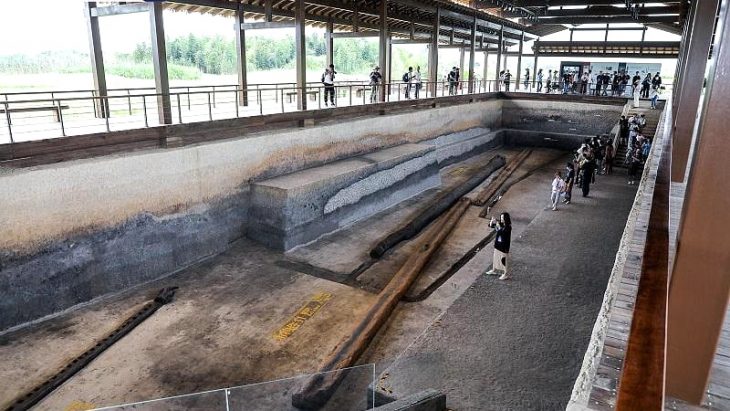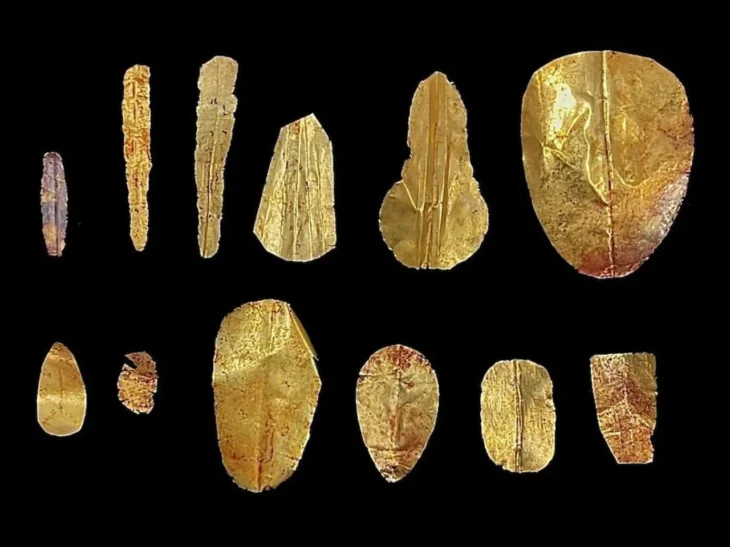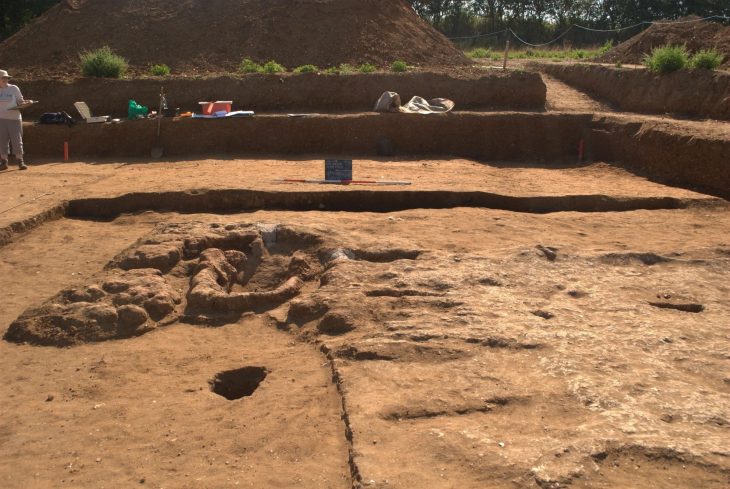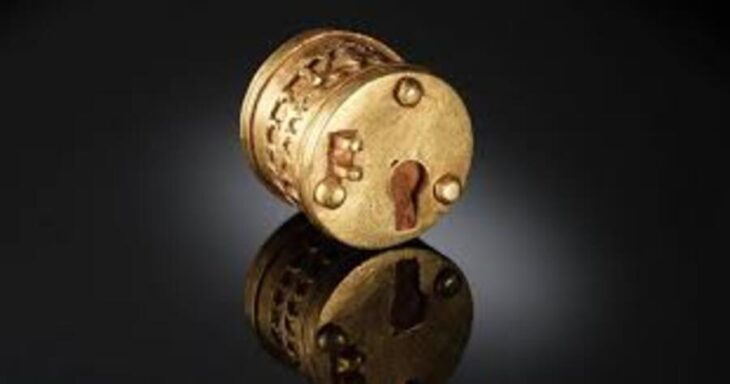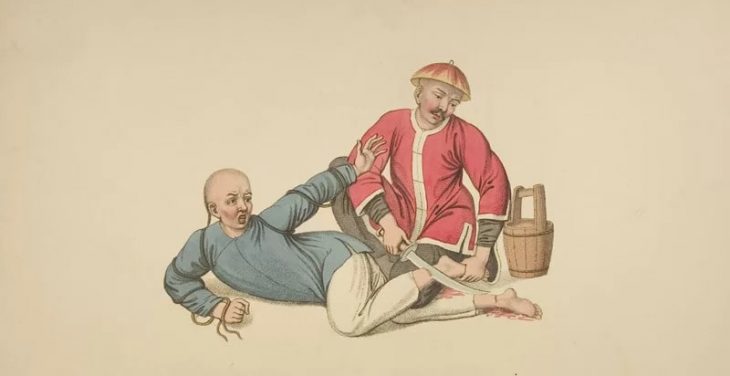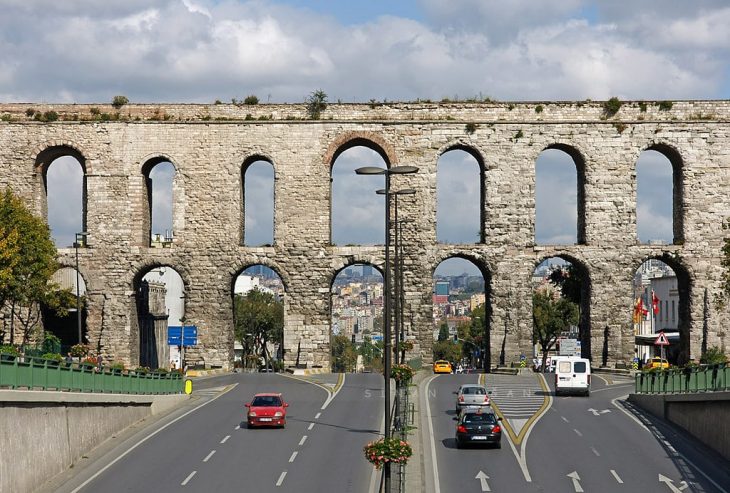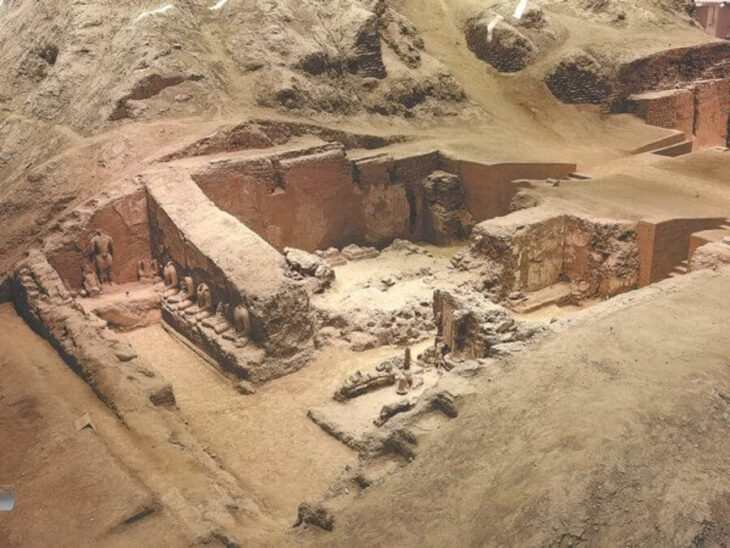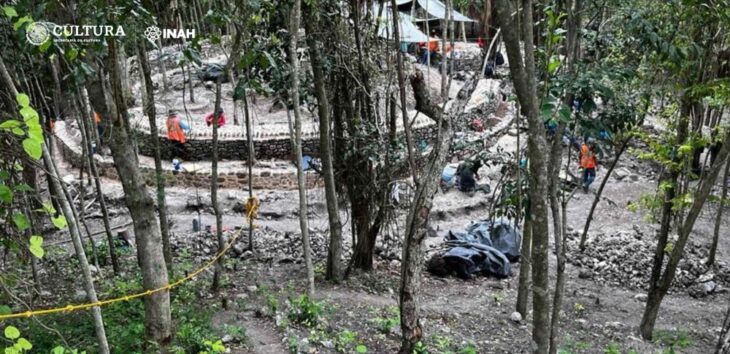Archaeologists have discovered about 8,600-year-old bread at Çatalhöyük, a Neolithic settlement in central Turkey.
Çatalhöyük is noteworthy because it is one of the first human proto-cities to have been built. Full of densely packed mud brick houses covered in paintings and symbolic decorations, its population hovered around 8,000. That made it one of the biggest settlements of its era, somewhere between an outsized village and a tiny city. People, mud-brick homes through ceiling doors, and they navigated sidewalks that wound around the city’s rooftops.
Archaeologists have discovered an oven structure in the area called “Mekan 66”. Around the largely destroyed oven, wheat, barley, pea seeds, and a handful find that could be food were found.
Analyses conducted at Necmettin Erbakan University Science and Technology Research and Application Center (BITAM) determined that the spongy residue was fermented bread from 6600 B.C.
Head of the Excavation Committee and Anadolu University Faculty Member Associate Professor Ali Umut Türkcan told the AA correspondent that when “archaeology” is mentioned, structures, monuments, and finds come to mind.
📣 Our WhatsApp channel is now LIVE! Stay up-to-date with the latest news and updates, just click here to follow us on WhatsApp and never miss a thing!!
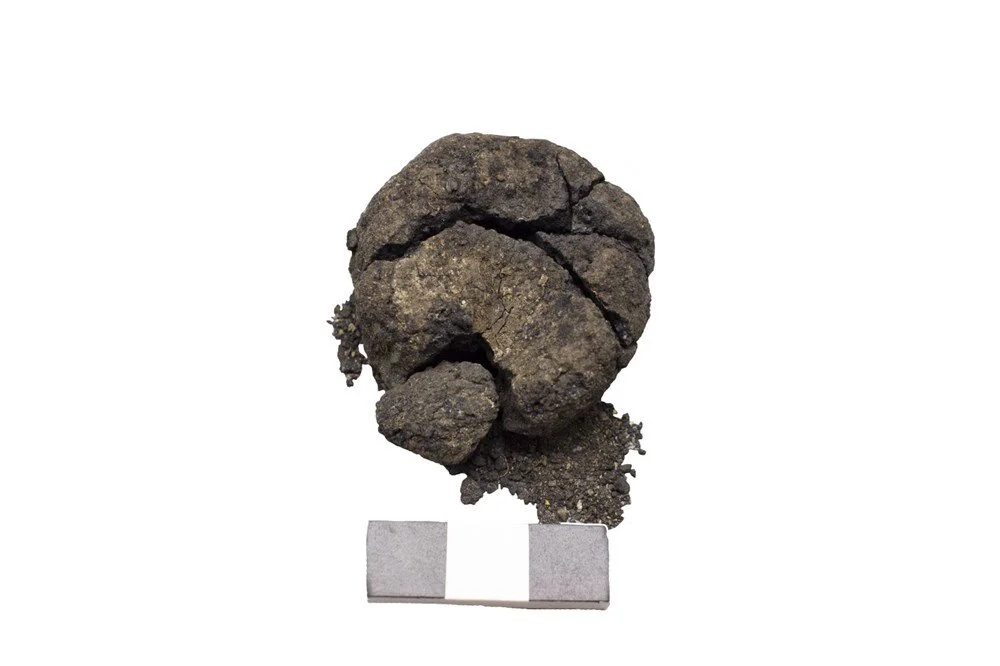
Pointing out that modern archaeology today also studies the archaeology of food, Türkcan said, “We need to say that the starting point of food archaeology is Anatolia. Çatalhöyük is one of the very important stops here. A finding we discovered in 2021. In Turkish excavations, we have shown that we can now detect such organic remains with very sensitive documentation and detailed studies,” he said.
Stating that Çatalhöyük Neolithic City has an important place in this field, Türkcan said:
“The small and round spongy find in the corner of the oven was found to be bread after careful documentation. The fact that the structure was covered with a thin clay allowed all of these organic remains, both wooden and bread, to be preserved until today. Radiocarbon tests conducted at the TUBITAK Marmara Research Center (MAM) showed that our sample can be dated back to approximately 6,600 BC.”
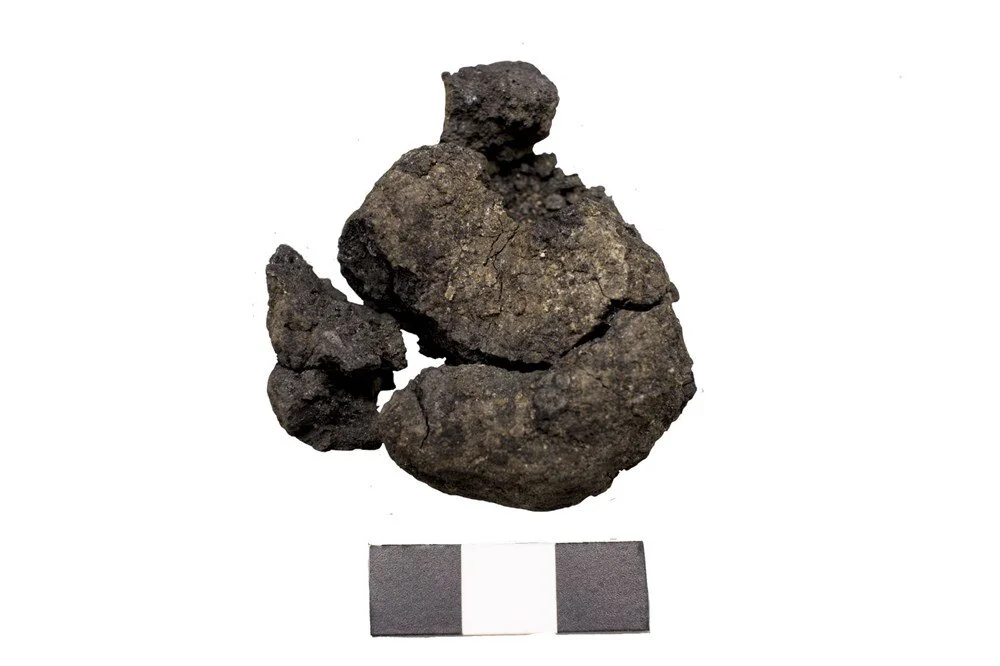
According to Turkcan, the earliest known evidence of leavened bread comes from Egypt, while the find at Catalhoyuk predates all others, making it the world’s oldest bread.
“We can say that this finds from Çatalhöyük is the oldest bread in the world. It is a reduced version of loaf bread. It has a finger pressed in the center, it was not baked, but it was fermented and came to the present day with the starches inside. There is no such example. Catalhoyuk was already the center of many firsts.”
In 2012 Çatalhöyük was designated a UNESCO World Heritage Site.

